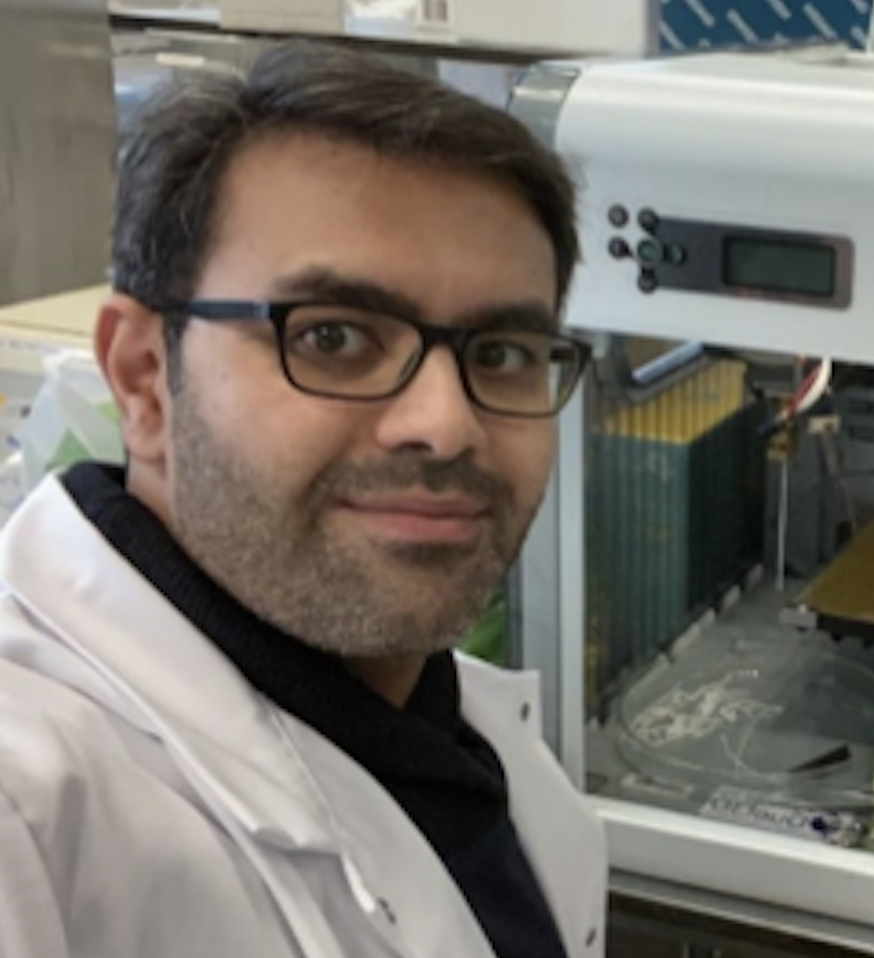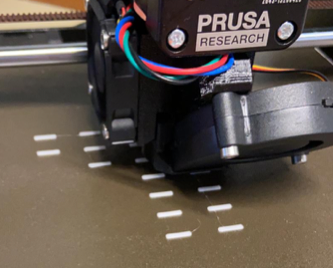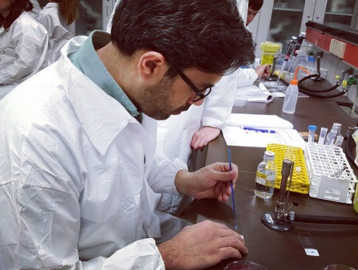
Bahaa Shaqour is a PhD student from Palestine and he is working with Prof. Paul Cos at the Laboratory for Microbiology, Parasitology and Hygiene (LMPH). He is exploring the capabilities of 3D printing technologies to produce novel medication delivery systems. 3D printing, also known as additive manufacturing, is a method of creating a three dimensional object layer-by-layer using a computer generated design. 3D printing enables the production of complex shapes which could not be produced using conventional manufacturing methods.
The 3D printing field is rapidly expanding and 3D printing technologies are becoming widely used. 3D printing provides the capacity to produce customized products at a relatively low cost and with minimal effort. In the medical field, 3D printing shows great potential in many sectors. From medical educational training, to the production of personalized medicines, such as medication delivery systems and patient-specific medical devices such as implants. Using 3D printing, patient-specific treatments can be designed that have optimal efficacy, while also minimizing any potential unwanted side effects.
Bahaa’s project focuses on adapting the currently used fused filament fabrication 3D printing technology to make it more suitable for use in medical applications. Fused filament fabrication is a 3D printing process that uses a continuous filament of thermoplastic material fed through a heated printer extruder head and is deposited to form layers.
He is working on improving the extrusion mechanism in this technology to enable the production of medication delivery systems. Bahaa is working on different applications such as the development of solid oral dosages and antibacterial and antibiofilm implantable devices. Biofilms are aggregates that are formed by microorganisms and these can be resistant to antimicrobial agents and host immune responses. With the widespread use
of medical devices, medical device-associated biofilms pose a serious threat to human health. Bahaa is working on developing a new generation of safer 3D-printed personalized medical devices with antimicrobial functionalities. This could potentially lead to safer implantable medical devices, with a lower risk of infection for the patient.
Bahaa has collaborated with different academic and industrial partners under the PrintAID consortium, which is a European training network funded by the EU Horizon 2020 research and innovation programme (Grant agreement No. 722467) such as Voxdale bv, Gent University and Warsaw University of Technology.


